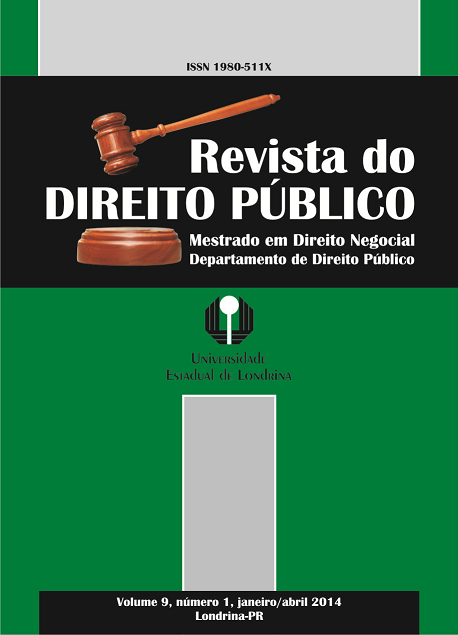Brics, an alternative power?
DOI:
https://doi.org/10.5433/1980-511X.2014v9n1p9Keywords:
BRICS, International Trade, IMF, WTO, International economic relationsAbstract
This article examines the growth of the BRICS' participation in global decision-making processes. Also it analyzes the rates of economic growth and trade flows among Brazil, Russia, India, China and South Africa (BRICS) and the implications of these data for the increment of power and influence of these countries in the international system, particularly in the economic and trade negotiations in multilateral forums and coalitions, such as the World Trade Organization (WTO), International Monetary Fund (IMF) and G20 financial. The method used was an empirical research, using qualitative and quantitative data and deductive reasoning, which proved that the BRICS are in consolidation phase as an alternative to the traditional European powers, United States and Japan. The work is justified by the convenience to understand the growing importance of Brazil, Russia, India, China and South Africa to the international economic decisions and for the multipolar setting of economic and political power. The results synthesize quantitative and qualitative findings brought to discussion, which feature the BRICS with growing economic and political power, waving them as an alternative power to the poles of traditional international politics.
Downloads
Downloads
Published
How to Cite
Issue
Section
License

This work is licensed under a Creative Commons Attribution-NonCommercial-NoDerivatives 4.0 International License.
Os autores cedem à Revista do Direito Público, direitos exclusivos de primeira publicação, com o trabalho simultaneamente licenciado sob a Licença Atribuição-NãoComercial-CompartilhaIgual 4.0 Internacional. Esta licença permite que terceiros façam download e compartilhem os trabalhos em qualquer meio ou formato, desde que atribuam o devido crédito de autoria, mas sem que possam alterá-los de nenhuma forma ou utilizá-los para fins comerciais. Se você remixar, transformar ou desenvolver o material, não poderá distribuir o material modificado.












